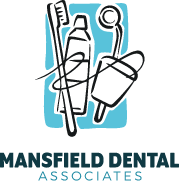You probably know that dental sealants are an essential part of children’s dentistry and are routinely applied to school-age children’s teeth to prevent the development of cavities. You might be surprised to learn that teens and adults can also reap major oral health benefits from having dental sealants placed, especially if you’re at a higher risk for tooth decay. Learn more about this simple, straightforward, and non-invasive preventive dentistry technique and discover whether you might be a good candidate for dental sealants.
What are Dental Sealants?
As the name implies, dental sealants are a protective coating applied to the surface of a tooth. Usually, sealants are applied to the top (biting) surfaces of the molars, since the pits and grooves in these areas are highly susceptible to tooth decay. The thin plastic coating is applied directly to a cleaned, dried tooth and allowed to dry.
Why are Dental Sealants a Good Idea?
Dentists recommend placing sealants on children’s teeth because they are at an especially high risk for tooth decay. However, adults in the following situations may also be at a higher risk for tooth decay, and therefore make good candidates for dental sealants:
If you have a diet high in sugar . . .
If you regularly drink sweet tea, soft drinks, or other sweetened beverages, or if your diet is high in refined carbohydrates and sugars you are at a higher risk for tooth decay. While changing your diet would be the best course, dental sealants can help protect your teeth in the meantime.
If you’re undergoing orthodontic treatment . . .
Bracket-and-wire braces make cleaning your teeth especially difficult, so some dentists recommend placing sealants as an extra preventive measure prior to placing braces.
If you have dry mouth . . .
In a normal mouth, saliva helps to wash away particles of sugar and food and maintain a healthy Ph. Chronic dry mouth is often a side effect of certain medications (like blood pressure medication) and certain conditions (like Sjogren’s disease). Xerostomia, the clinical name for dry mouth, dramatically increases the risk for tooth decay. As a result, dentists sometimes recommend sealants for patients with chronic dry mouth.





Recent Comments